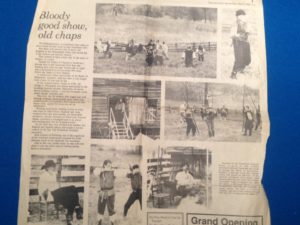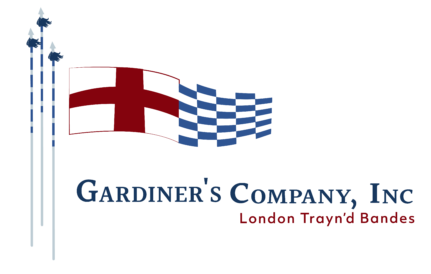GETTING STARTED WITH
Language
Members speak standard American English during events and do not adopt British accents or speak in exact Shakespearean English. Learning Elizabethan English would be like learning a new language. While many words and pronunciations are the same as modern American, there are many differences. Below is a good way to start, and soon, you’ll want to add some Elizabethan speech patterns and words to your vocabulary.
For example, Shakespearian films, such as Henry V and Much Ado About Nothing are excellent examples of the fancy speech of the time. The dialog in Shakespeare in Love and the Blackadder Elizabethan series is closer to what the Bandes use.
To maintain an immersive atmosphere, conversations can be coordinated with members about a topic. It is possible to discuss what you recently read in a broadsheet (internet), or your new horse (car) and a play you saw recently (TV program). If you stay away from modern terms, you can discuss almost anything. It takes practice and is quite fun.
We encourage everyone to take a deep breath and talk about whatever comes to mind.
Simple Adjustments to Speech
A few simple adjustments to speech can easily create a basic Elizabethan vocabulary.
Use these often
- aye & nay (instead of yes & no)
- mayhap (instead of maybe)
- avoid modern contractions (say “cannot”, rather than “can’t”)
Use these occasionally or regularly
- place “do” before verbs (“I do fear…”, “We did eat well.”)
- use “more better”, “most smallest”, etc.
- use “’tis” rather than “it is”; “twas” rather than “it was”; “twill” rather than “it will”
- say the -ed in words like played (play-ed) and danced (dance-ed)

Basic Forms of Address
Modernly, titles such as Ms., Mrs., and Mr. translate to Master and Mistress in the Elizabethan period. When in doubt, Master (Name) or Mistress (Name) is always an acceptable form of address. “Sir” is a term used to address male personas of higher social status. Nobility do not attend Bandes events, so the use of My Lord or My Lady is not necessary. “Good” can also be used before “man”, or “wife”, “Master” or “Mistress” as a form of address (“Good day, my Good Mistress”).
Sources
Trayn’d Bandes of London Publications
- – The Englishe Breviat
– The Elizabethan Trained Bands
– Pious, Bibulous and Rude (song and game book)
– The Tudor-Stuart Sourcebook
– A Living History Guide to Elizabethan Southwark
Additional Publications
The Elizabethan Handbook, Vox Clamantis Monograph 2
The Elizabethan Language Book, G. Zepeda, Renaissance Entertainment Corp.
Daily Life in Elizabethan England, J. Singman, Greenwood Press
